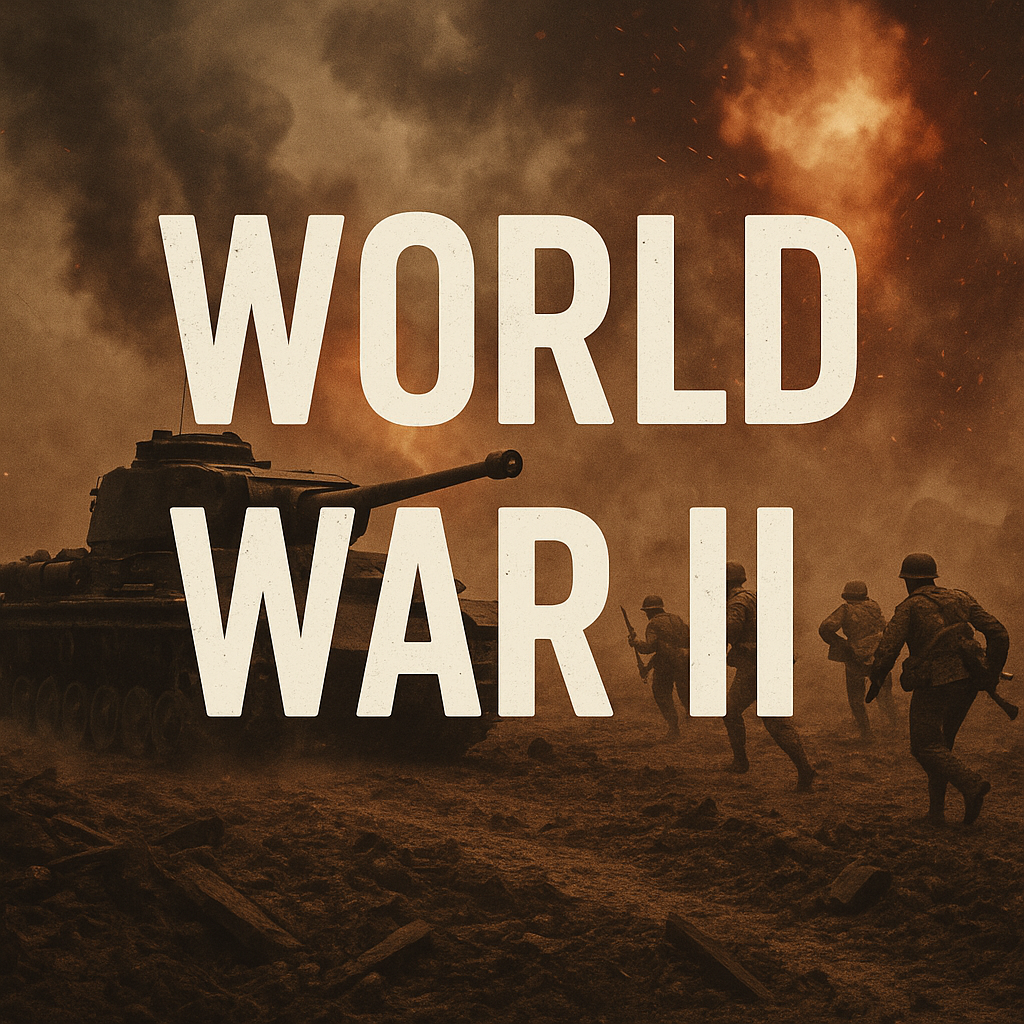World War II: Causes, Battles, and Consequences | Smart Study Academy
World War II: Causes, Major Battles, and Consequences
📚 A Comprehensive Overview – Smart Study Academy
1. Introduction
World War II (1939–1945) was a catastrophic global conflict that reshaped the modern world through immense human loss, ideological clashes, and the realignment of power on a global scale.
2. Causes of World War II
- Treaty of Versailles (1919): Harsh terms on Germany created resentment and instability.
- Rise of Fascism and Totalitarianism:
- Germany (Hitler), Italy (Mussolini), Japan (militarism)
- Failure of the League of Nations: Inability to prevent aggression (e.g., Manchuria, Ethiopia)
- Great Depression: Economic hardship fueled extremist ideologies.
- Appeasement: Munich Agreement encouraged Hitler’s aggression.
- Expansionist Policies: Lebensraum (Germany), Greater East Asia Co-Prosperity Sphere (Japan)
3. Major Battles and Events
- Invasion of Poland (1939): Triggered the war.
- Blitzkrieg in Western Europe: Germany quickly overran France and others.
- Battle of Britain (1940): UK's successful air defense.
- Operation Barbarossa (1941): Failed German invasion of USSR.
- Pearl Harbor (1941): U.S. entered the war.
- Pacific Battles: Midway, Guadalcanal; island hopping strategy.
- North Africa: El Alamein turned tide for Allies.
- Battle of Stalingrad: Major Soviet victory.
- D-Day (1944): Allied landings in Normandy.
- Fall of Berlin (1945): End of war in Europe.
- Atomic Bombings: Hiroshima and Nagasaki led to Japan’s surrender.
4. Consequences of World War II
- Human and Economic Losses: Over 70 million deaths; widespread destruction.
- Holocaust: Systematic genocide of 6 million Jews and other groups.
- United Nations: Formed in 1945 to ensure peace and cooperation.
- Superpowers Emerged: USA and USSR led to Cold War.
- Decolonization: Weakened colonial empires; rise of independence movements.
- Marshall Plan: U.S.-led economic recovery in Europe.
- Bretton Woods System: Birth of IMF, World Bank.
- War Crime Trials: Nuremberg and Tokyo trials held leaders accountable.
5. Legacy and Key Takeaways
- Importance of diplomacy and global cooperation.
- Origins of modern international institutions and laws.
- Rise of nuclear weapons and Cold War dynamics.
- Understanding history to prevent future conflicts.
6. Conclusion
World War II was a turning point in human history. Its legacy continues to influence geopolitics, ethics, and international relations. For students, it offers powerful lessons in resilience, leadership, and the importance of peace.
